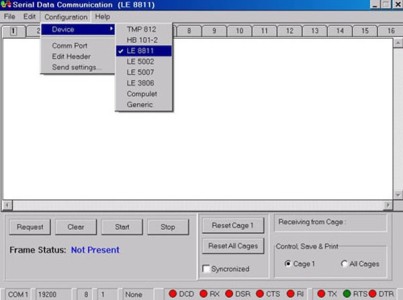Authors
Y. Simonin, Y. Charron, P. Sonderegger, J.-D. Vassalli, A. C. Kato.
Lab
University of Geneva, Faculty of Medicine, Departments of Basic Neurosciences and Genetic Medicine and Development, Geneva, Switzerland.
Journal
The Journal of Neurosciences
Abstract
Various studies suggest that proteolytic activity may be involved in a number of neurodegenerative disorders, including stroke and seizure. In this report, we examined the role of tryptic serine proteases, plasminogen activators (PAs), in the evolution of a neurodegenerative disease. Transgenic mice overexpressing an axonally secreted inhibitor of serine proteases (neuroserpin) were crossed with mice characterized by a “dying-back” motor neuron disease [progressive motor neuronopathy (pmn/pmn)]. Compared with pmn/pmn mice that showed an increase in PA activity, double mutant mice had decreased PA activity in sciatic nerves and spinal cord; their lifespan was increased by 50%, their motor behavior was stabilized, and histological analysis revealed increased numbers of myelinated axons and rescue of motoneuron number and size. This is the first report showing that a class of serine proteases (PAs) may be involved in the pathogenesis of a motor neuron disease and more specifically in axonal degeneration. Inhibiting serine proteases could offer a new strategy for delaying these disorders.
BIOSEB Instruments Used
SEDACOM SErial DAta COMmunication Software (SEDACOM)
Source :

 Pain - Thermal Allodynia / Hyperalgesia
Pain - Thermal Allodynia / Hyperalgesia Pain - Spontaneous Pain - Postural Deficit
Pain - Spontaneous Pain - Postural Deficit Pain - Mechanical Allodynia / Hyperalgesia
Pain - Mechanical Allodynia / Hyperalgesia Learning/Memory - Attention - Addiction
Learning/Memory - Attention - Addiction Physiology & Respiratory Research
Physiology & Respiratory Research











![Dynamic Weight Bearing 2.0 – Postural Module [Add-on]](https://bioseb.com/733-home_default/dynamic-weight-bearing-20-add-on-postural-module.jpg)
























 Pain
Pain Central Nervous System (CNS)
Central Nervous System (CNS) Neurodegeneration
Neurodegeneration Sensory system
Sensory system Motor control
Motor control Mood Disorders
Mood Disorders Other disorders
Other disorders Muscular system
Muscular system Joints
Joints Metabolism
Metabolism Cross-disciplinary subjects
Cross-disciplinary subjects CONFERENCES & MEETINGS
CONFERENCES & MEETINGS 